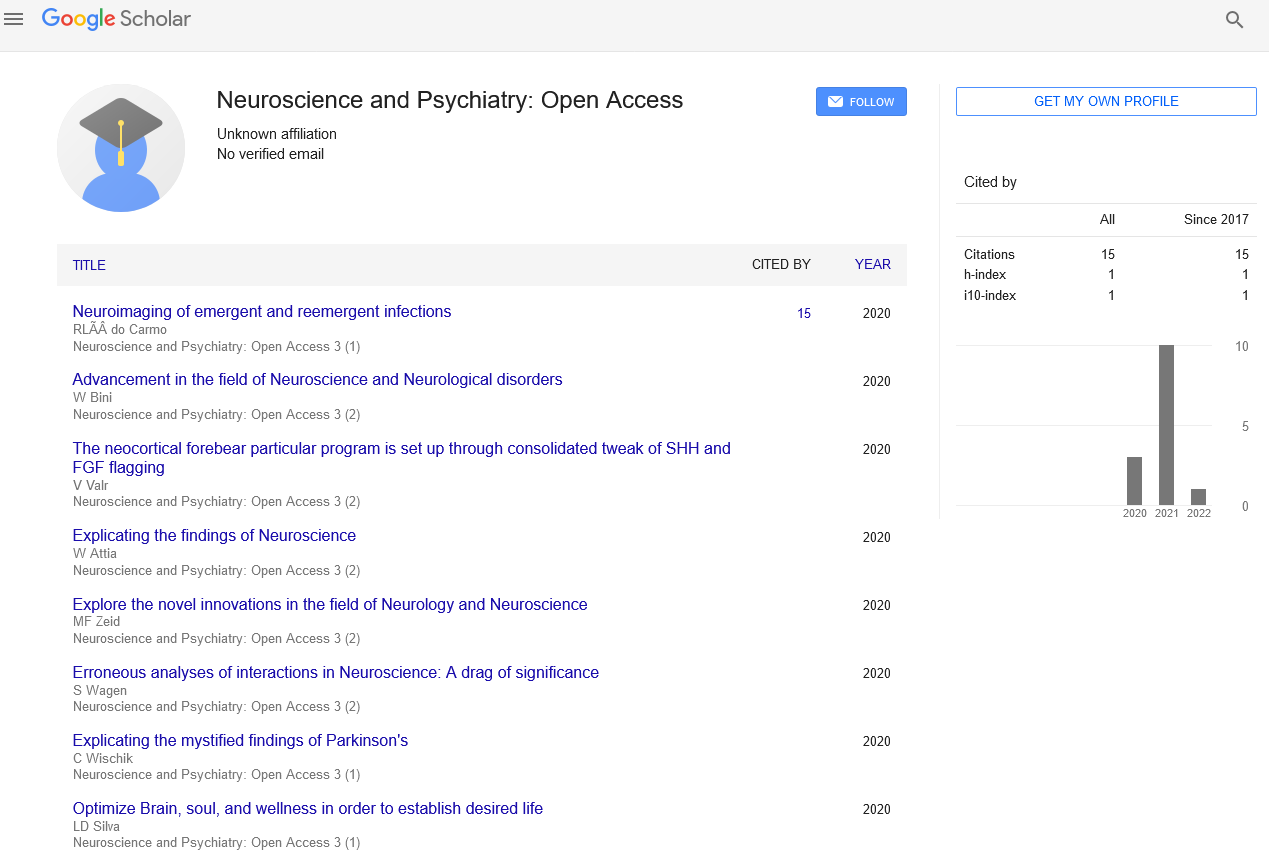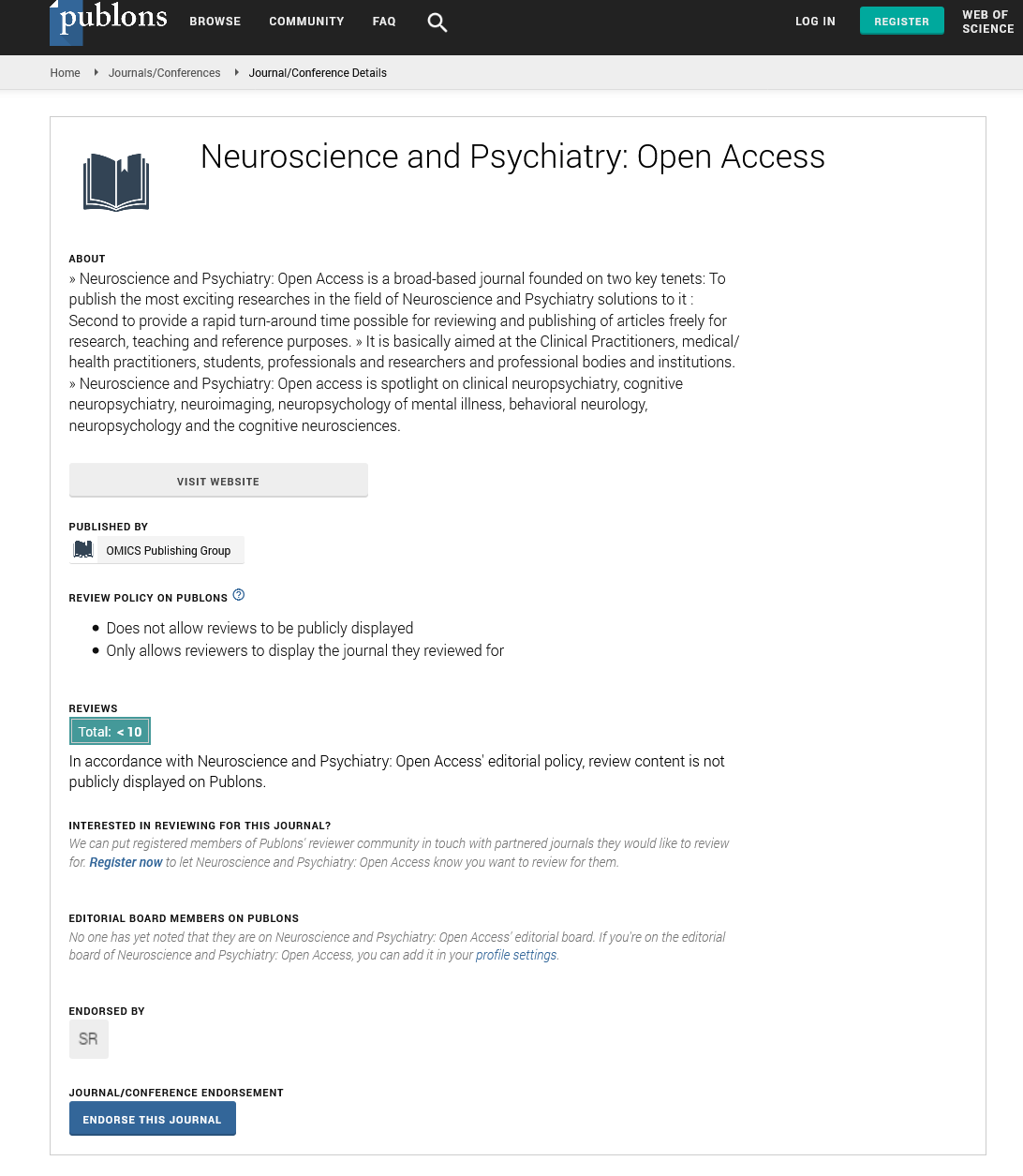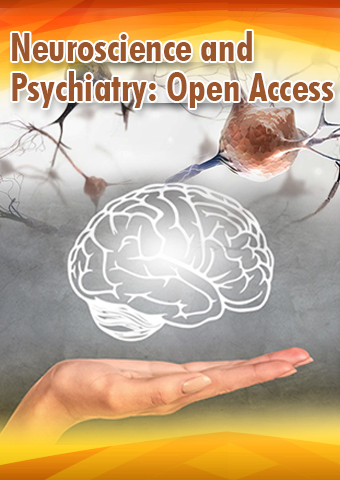Perspective - Neuroscience and Psychiatry: Open Access (2024) Volume 7, Issue 3
Exploring the Depths of Psychotherapy: Integrating Neuroscience and Psychiatry
- Corresponding Author:
- Justine Hansen
Department of Physiology, University of Toronto, Toronto, Canada
E-mail: justine.han4@mail.mcgill.ca
Received: 23-04-2024, Manuscript No. NPOA-24-133880; Editor assigned: 26-04-2024, PreQC No. NPOA-24-133880 (PQ); Reviewed: 10-05-2024, QC No. NPOA-24-133880; Revised: 20-05-2024, Manuscript No. NPOA-24-133880 (R); Published: 27-05-2024, DOI: 10.47532/npoa.2024.7(3).214-215
Introduction
Psychotherapy, often referred to as talk therapy, stands as a cornerstone in the realm of mental health interventions. Rooted in psychological theories and therapeutic techniques, psychotherapy transcends traditional medical approaches by delving into the intricate workings of the human mind. In this comprehensive discourse, we navigate the landscape of psychotherapy, exploring its evolution, theoretical frameworks, neurobiological underpinnings, clinical applications, and emerging trends within the realms of neuroscience and psychiatry.
Description
The evolution of psychotherapy: From freud to modern modalities
The origins of psychotherapy can be traced back to the pioneering work of Sigmund Freud and his psychoanalytic approach. Freud’s emphasis on the unconscious mind, defense mechanisms, and the therapeutic relationship laid the groundwork for subsequent psychotherapeutic theories. Over time, psychotherapy diversified into various schools of thought, including Cognitive- Behavioral Therapy (CBT), psychodynamic therapy, humanistic existential approaches, and mindfulness-based interventions.
Modern psychotherapy integrates evidence-based practices, empirical research, and collaborative therapeutic alliances, emphasizing personalized interventions tailored to the unique needs and preferences of each individual. This evolution reflects a shift towards integrative and eclectic approaches that draw from multiple theoretical perspectives, fostering flexibility and responsiveness in clinical practice.
Theoretical frameworks in psychotherapy: Insights from neuroscience
Neuroscientific advancements have enriched our understanding of the neural substrates underlying psychological processes, emotional regulation, cognition, and behavior. Integrating neuroscience with psychotherapy elucidates the neurobiological mechanisms of therapeutic change, offering insights into how psychotherapeutic interventions modulate brain function and structure.
For instance, studies employing functional neuroimaging techniques such as functional MRI (fMRI) reveal neural correlates of therapeutic interventions, highlighting changes in brain activity within regions implicated in emotion regulation (e.g., amygdala, prefrontal cortex), reward processing (e.g., nucleus accumbens), and self-referential processing (e.g., default mode network).
Clinical applications and efficacy
Psychotherapy encompasses a breadth of clinical applications across various psychiatric disorders, psychological distress, and life challenges. Evidence supports the efficacy of psychotherapeutic interventions as standalone treatments or adjuncts to pharmacotherapy, particularly in conditions such as depression, anxiety disorders, Post-Traumatic Stress Disorder (PTSD), eating disorders, and personality disorders.
Key psychotherapeutic modalities, including CBT, Dialectical Behavior Therapy (DBT), Acceptance and Commitment Therapy (ACT), Interpersonal Psychotherapy (IPT), and psychodynamic therapy, offer distinct frameworks and techniques tailored to specific symptom profiles and therapeutic goals. The therapeutic alliance, therapeutic techniques, and therapeutic processes play pivotal roles in fostering meaningful change and promoting psychological well-being.
Neuroplasticity and psychotherapeutic interventions
Neuroplasticity, the brain’s ability to reorganize and adapt in response to experiences and environmental stimuli, underscores the transformative potential of psychotherapeutic interventions. By harnessing neuroplasticity, psychotherapy promotes adaptive neural rewiring, enhances resilience, and fosters psychological flexibility.
Interventions targeting cognitive restructuring, emotion regulation, mindfulness practices, exposure techniques, and relational dynamics elicit neuroplastic changes that contribute to symptom reduction, enhanced coping strategies, and improved quality of life. Neuroscientific research corroborates these neurobiological changes, reinforcing the bidirectional relationship between psychological interventions and brain plasticity.
Emerging trends and innovations
Advancements in technology, such as Virtual Reality (VR) therapy, biofeedback devices, and digital mental health platforms, herald new frontiers in psychotherapeutic delivery and accessibility. VR therapy, for instance, facilitates immersive exposure experiences for anxiety disorders and PTSD, providing a safe yet realistic therapeutic environment.
Moreover, integrative approaches that combine psychotherapy with complementary modalities like art therapy, music therapy, yoga, and mindfulness-based interventions showcase the synergistic benefits of holistic healing. These innovative modalities underscore the evolving landscape of psychotherapy, characterized by diversity, inclusivity, and patient-centered care.
Challenges and future directions
Despite its efficacy and versatility, psychotherapy encounters challenges related to stigma, access to care, workforce shortages, and healthcare disparities. Addressing these challenges necessitates advocacy efforts, destigmatization initiatives, interdisciplinary collaborations, and integration of mental health services into primary care settings.
Looking ahead, the integration of neuroscience, technology, and personalized medicine holds promise for advancing psychotherapeutic interventions. Precision psychiatry, informed by neurobiological markers and predictive analytics, may enhance treatment outcomes and optimize therapeutic matching, ushering in a new era of tailored interventions grounded in scientific rigor and compassionate care.
Conclusion
In conclusion, psychotherapy embodies a holistic vision for mental health, weaving together the art and science of healing. By synergizing insights from neuroscience, psychiatry, and psychological theories, psychotherapy cultivates resilience, fosters self-discovery, and empowers individuals on their journey towards psychological well- being. As we navigate the complexities of the human psyche, the integration of neuroscience and psychiatry within psychotherapeutic practice illuminates pathways for transformative change, resilience-building, and holistic flourishing.


